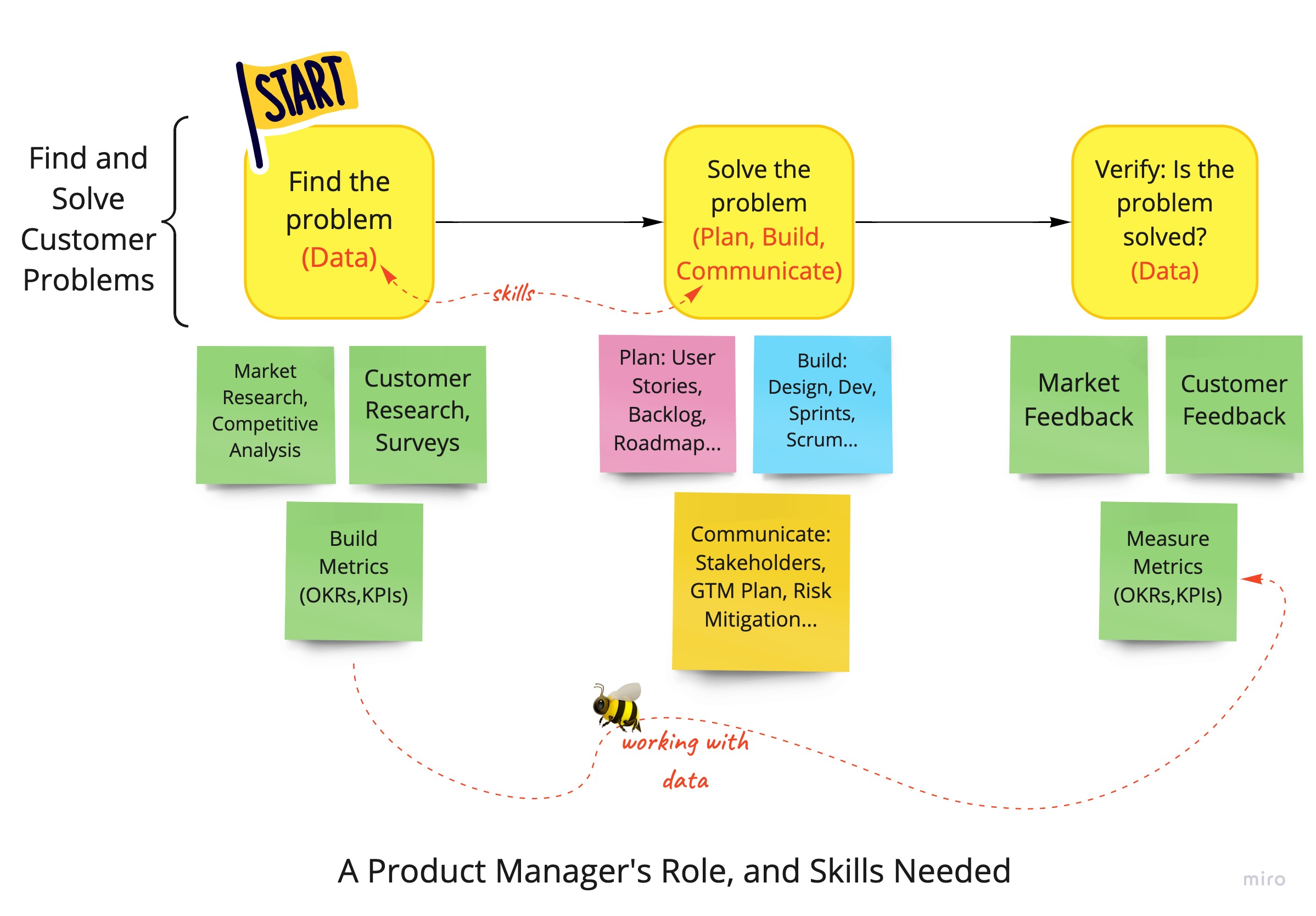
Image Credit: Dan Olsen
This article is a rant.
“A Product Manager is a CEO of their product…”
Statements like this 👆🏽 get my goat every time. Sometimes less experienced product managers take these statements at face value, assuming product-building to be an end-all-be-all process, which impedes their growth. Below I’ve given some counter-views to showcase how different these roles are.
I’ve formed these opinions as a result of working in tech for over 15 years and having played both these roles at different points in my career. (The CEO role comes from building and running my own company).
In addition to these roles (product manager and CEO) having different focus areas, running a company is much harder than building a product - the number of moving pieces increases manifold, and the context switching is mind-boggling.
Outline and Assumptions
I’ve structured the article into three parts:
- A product manager’s role
- A CEO’s role
- How these roles differ
I’m limiting my scope to technology companies - companies building software products or services. The intended audience is product managers with some experience in building products.
If you are a Director/VP of Product this might not be very interesting. (You role already has a high strategy and planning component, and I suspect you already know that Product Managers are not CEOs)
A Product Manager’s Role
“As a product manager you sit between technology, business, sales, and marketing…” “You’ll collect requirements from customers and business…and build products that delight the customers…”
I’m sure you’ve read these definitions multiple times in job postings and emails from recruiters. Let me give you a definition that works for me.
🍁🍁 You find, and solve, problems for your customers 🍁🍁
Two comments on this definition:
The first bit (finding the problem) is important and is the stuff that comes before planning, building roadmaps, prioritizing, basically every agile term and artifact we have.
A sub-rant here:
Agile ≠ Product Management
Agile is concerned with software or product development, which is just a subset of product management.
Customers and users might sometimes be different. A customer is someone who pays for the product; a user is, well, who uses the product. Whose problems are you solving? the users’ or the customers’?
Here are some other roles you’ll fill as a product manager. I’ve divided them by areas:
Communication: language translator, asker of questions (from business, tech, sales, and others), opinion former
Data: researcher (before building), data analyzer (after building)
Planning, Project Management: Remember that last recruiter who called offering you a contract role? Add all the agile buzzwords you heard them reading from their script: building roadmaps, prioritizing features, user story mapping, agile, scrum… you get the idea.

A CEO’s Role
💰💰 The primary job of a CEO is to sell. 💰💰
Read this statement again. This should clarify the difference in expectations for these roles.
Let me share a story a friend told me sometime back: There was a baker who worked in a highly successful bakery. His cakes were pretty popular, and he was paid handsomely by the owner. The baker had this idea to open his own bakery - why should I have to share the profits with the bakery owner when I do all the hard work? So he opened his own bakery near his old workplace. Unfortunately, his cakes didn’t sell like the hot commodity they were at his old place. What this baker didn’t realize was:
🎂 Baking a cake and selling a cake are two different skills. 🎂
And selling is not that easy.
Here are a few other components of a CEO’s job. This is by no means a comprehensive list and is constrained by my current understanding of the role. These functions overlap at times.

Job Function: CEO vs Product Manager
🔥 In essence, a CEO is more concerned with selling, while a product manager is focused on solving problems. 🔥
Power
As a CEO you have the ultimate authority over people working for you - you can hire/fire people. A product manager’s role OTOH depends on collaboration, relationship building, and using a good deal of soft power.
As the CEO you decide the direction the company would take in terms of products, messaging, market positioning, etc.
… and responsibility
With all this authority, and people (customers, employees, your board) relying on them to make the correct decisions, a CEO has a relatively low margin of error. The proverbial buck starts, and stops, with you.
A product manager has it relatively easier - if tomorrow a product failed, it won’t make the company go belly-up (unless it’s a startup, in which case the PM is probably also the CEO).
So, there you have it. A product manager is not a CEO of the product. Next time somebody tells you otherwise, maybe they are just trying to motivate you to take on more job functions.